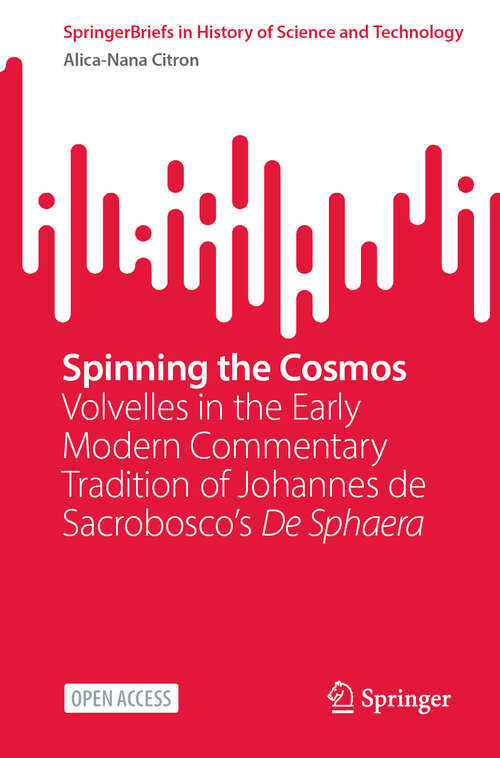
Spinning the Cosmos: Volvelles in the Early Modern Commentary Tradition of Johannes de Sacrobosco’s De Sphaera (SpringerBriefs in History of Science and Technology)
Science and technology
Synthetic audio, Automated braille
Summary
This open access book investigates the epistemological concept of and the knowledge transfer interwoven with the moveable paper wheels found in medieval and early modern books—the so-called &“volvelles.&” The earliest known volvelles emerged in the mid-thirteenth century and were cut… out and installed by the reader, often appearing in books dealing with astronomical subjects. The brain processes and remembers images more easily than words—the so-called &“picture superiority effect&”—especially if the images move, making volvelles a useful method to help students of the Quadrivium memorizing the heavenly movements, thus the composition of a device embedded within a text promises a comprehensive insight into the didactic concepts of early modern knowledge transfer. The Tractatus de Sphaera by Johannes de Sacrobosco (1195–1256), the standard university textbook for astronomy from the thirteenth until the seventeenth century, was particularly noted as containing volvelles of different kinds. The project &“The Sphere,&” located at the Max Planck Institute for the History of Science in Berlin, has collected a corpus of 359 printed De sphaera editions, building a promising basis for examining different volvelles and placing the results in a cultural context. These volumes had never been analyzed in detail before, nor was there such a large corpus that could provide a quantitative database for such an investigation. The results of the book show that a book and knowledge tradition as widespread as that of the Sphaera contained more than one third of volvelles and was used in university teaching in the early modern period. For historians, this sheds light on a new aspect of movable paper instruments in university didactics and book history in the early modern period.